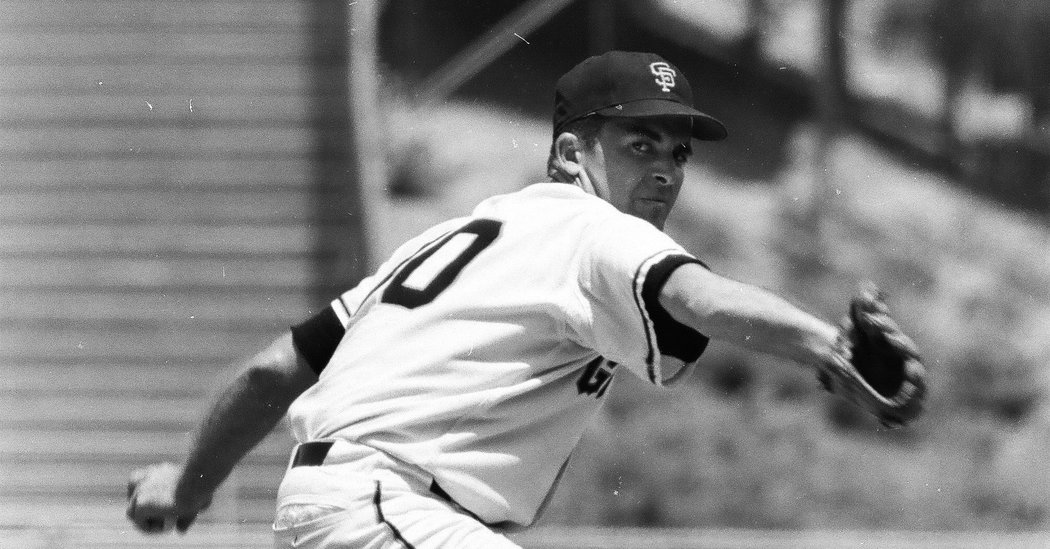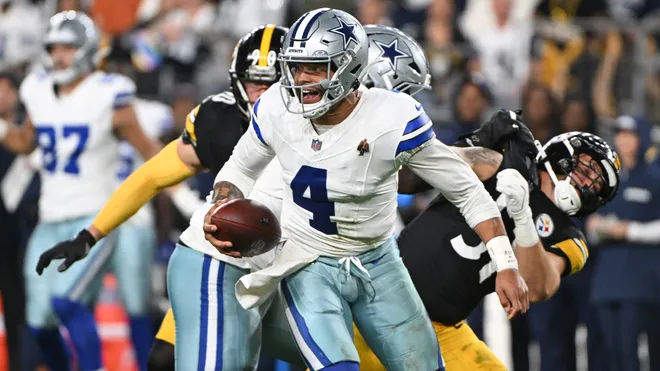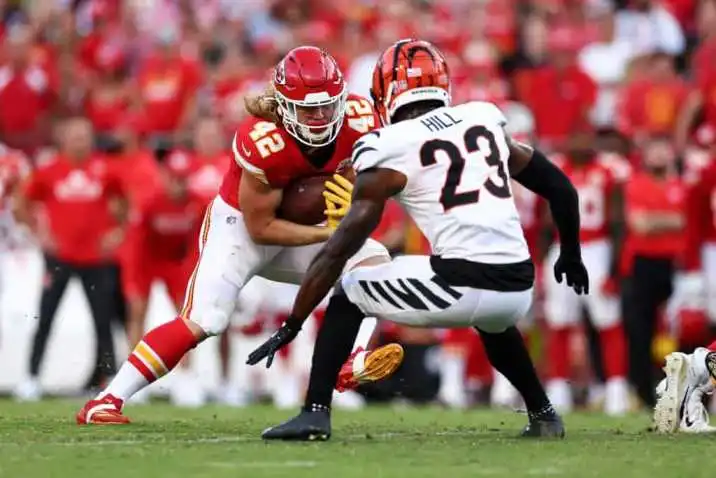
Mike McCormick, Comeback Cy Young Award Winner, Dies at 81
Mike McCormick, who threw his first major league pitch at age 17 with the 1956 New York Giants, was a two-time All-Star with the Giants in San Francisco, and later overcame a sore arm to win the 1967 Cy Young Award as the National League’s leading pitcher, died on June 13 at his home in Cornelius, N.C. He was 81.
His family said the cause was complications of Parkinson’s disease.
McCormick, a left-hander with an outstanding fastball, became an anchor of the Giants’ pitching rotation in their early years in San Francisco, together with Johnny Antonelli, Jack Sanford, Sam Jones and later the Hall of Famer Juan Marichal. He posted the league’s lowest earned run average, 2.70, in 1960.
But he was hampered by a sore pitching shoulder in 1962. That year he won only five games and didn’t pitch in the World Series, which the Giants lost to the Yankees in seven games.
The Giants traded McCormick to Baltimore after that season. He continued to flounder with the Orioles, who sent him to the minors. But he began returning to form, with the aid of cortisone shots, while pitching for the second Washington Senators franchise in 1965 and 1966.
He salvaged his career by developing a screwball, changing speeds and saving his fastball, which had lost much of its zip, for spot situations.
“I was left-handed, and I had good control, so I was allowed to stay around,” he told The San Francisco Chronicle in 2002.
The Giants got McCormick back in a multiplayer deal with the Senators, setting the stage for a remarkable comeback.
In capturing the Cy Young Award the first time it was given separately to pitchers from the National and American leagues, he won an N.L.-leading 22 games (while losing 10), threw five shutouts, pitched 14 complete games and posted a 2.85 earned run average.
He was the only San Francisco Giant to win the award until Tim Lincecum in 2008.
McCormick remained with the Giants into the 1970 season, then pitched briefly with the Yankees that year and with the Kansas City Royals in 1971 before retiring from the major leagues with a 134-128 record in 16 seasons, 11 of them with the Giants.
He told The Chronicle that by the time he retired, his left arm was crooked “like Carl Hubbell’s was,” citing the New York Giants’ Hall of Fame screwball specialist. “I’d play every day if I could,” he continued, “and that’s probably part of the reason I hurt my arm. I’d never say no. I’d say, ‘Fine, give me the ball.’ I loved it.”
Michael Francis McCormick was born on Sept. 29, 1938, in Pasadena, Calif., to Kenneth and Barbara McCormick. His father, who had pitched in semipro ball, tutored him in baseball basics.
Mike was a star high school pitcher in Alhambra, Calif., near Los Angeles, then signed for $50,000 with the Giants in 1956. Because of the size of his contract, he was known as a “bonus baby,” a player who had to spend his first two professional seasons in the majors, rather than the minor leagues, taking up a roster spot, a provision designed to discourage club owners from lavish spending (for that era) on untested young players.
Dropping plans to pitch for the University of Southern California, McCormick made his Giants debut on Sept. 3, 1956. He pitched in only 27 games, mostly in relief, with a 3-2 record before the Giants moved to San Francisco in 1958. But his victory totals were in double figures during his first four years there.
After leaving baseball McCormick was a stockbroker, later sold office equipment and did promotional work for the Giants. He then settled in North Carolina.
He is survived by his second wife, Dierdre; their daughter, Tara; two sons, Michael Jr. and Matthew, and a daughter, Stacy Moeller, from a previous marriage; a stepson, Cory Hodge; seven grandchildren; and a great-granddaughter.
Apart from his achievements, McCormick marked a milestone in which he was the victim: In July 1968, he gave up Hank Aaron’s 500th home run.
His license plates read, “MR 500.”








